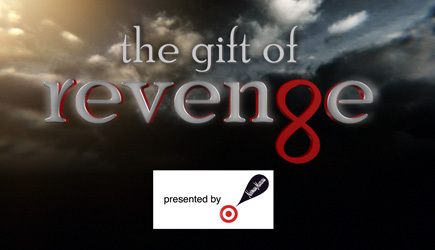So there’s been lot of
tweeting lately about the Penguin-Random House merger (and some sad commentary,
mostly on Tumblr, about the fact that the new company would not in fact be
called Random Penguin.) O brave new world that has only three or four companies
in it…that’s where we are heading, according to most of the smarty-pants people
who read a lot more about the state of the economy than me.
The new company will have
a quarter of the publishing market—a quarter.
And I’ve read recently that other major houses are considering consolidation,
and that the expected outcome is just a handful of mega companies will control
all our entertainment options.
Of course everyone on
down the line is watching, concerned. Fewer buyers will of course impact the
sellers. But in the case of YA, what about the kids for whom those books are
written? I think of these things because I am a selfless and practically
angelic individual. Actually, I’m a teacher, and it’s more like a habit. But in
all seriousness, if there are only a handful of publishers (or, gulp, one
publisher)…how will that affect the options the next generation of kids find
when they walk into a bookstore? (okay, probably when they log on to a bookstore…) Will AppleGoogleiBooks make sure there’s a
title out there for everyone? Will titles which might appeal to a niche market
be taken on when there are so many demands for cross-marketing and product
placement and brand synergy?
That’s an advertising
term: clutter. I know from (trying to) teach my students to be savvy consumers
when we study marketing and propaganda and the like. And for a world that’s
heading toward five gigantic companies, this world’s awfully full of clutter. I
had a very confusing moment last night while trying to watch the latest episode
of Revenge. A completely weird and
seemingly unrelated scene took place, and I was confused for a full ten
minutes, until I realized that scene had been an adverstisement, acted by the series stars, shot on the same film,
in the same style as the series. Better yet: it was an ad for a partnership
among Neiman Marcus, Target, and, of course, Revenge. For all I know Disney owns all three of these companies,
not just the TV network.
So these ads kept coming
up all through the freaking show, and it confused my DVRing, at the end of a
tired day, because the faces were the same as the actors on the show. Which
was, of course, all part of NeiTarvenge’s diabolical plan. It did not, however,
make me want to go to Neiman Marcus (and it even made me sort of mad at my
beloved Target)—so I’m pretty sure their plan backfired at my house, at least.
The ironic part about
marketing is that the more they put out there, the more they add to the
clutter, the greater the lengths they have to go to get our attention. Until
the day in 2032 when probably Mark Zuckerberg makes one last merger and then we
can all just sit back and enjoy the synergy.
 |
| What does that even mean? |
Yes! All those ads during Revenge confused me, too. And it just goes to show how small a world big business really is, which can only mean less options, inflated prices, and lower quality of so many things in the future. I certainly don't envy trying to explain to the youth of America that just because they read it on the internet, doesn't mean it's necessarily true. Those of you who choose to teach are truly the most courageous and selfless of us all :0)
ReplyDeleteThanks for that :) Some days are definitely a challenge! And I teach at a really great private school. I'm so glad I wasn't the only one confused by those ridiculous ads! Can't even tell what products they were trying to sell!
DeleteIt's all numbers to them. Unfortunately for readers, I think it will mean higher prices and lack of diversity.
ReplyDeleteI think you're right...and it's happening in all industries. I really hope I don't have to go to Wal-Mart someday because it's the only big store (or to Taco Bell because it's the only restaurant, like in Demolition Man!)
Delete